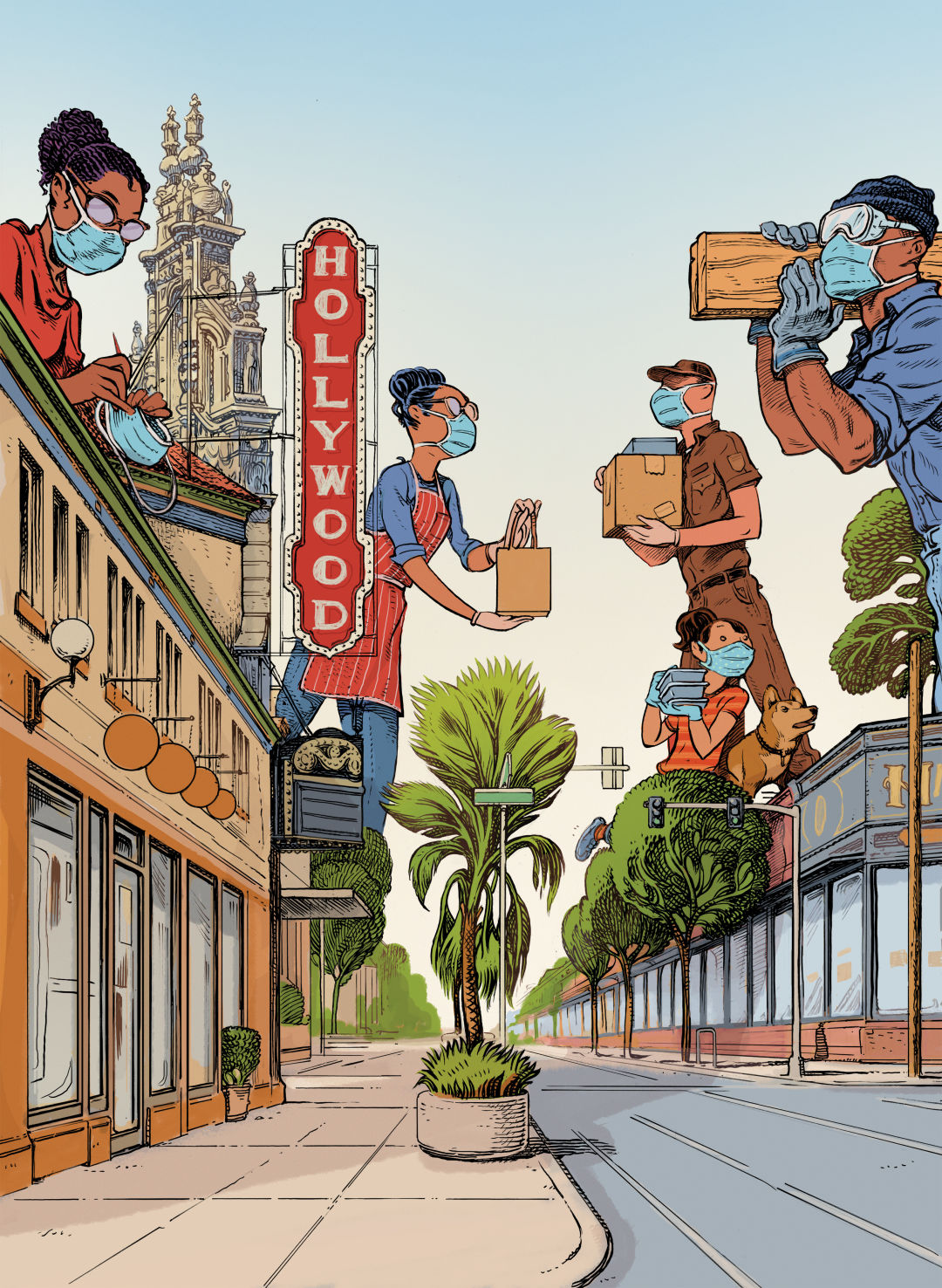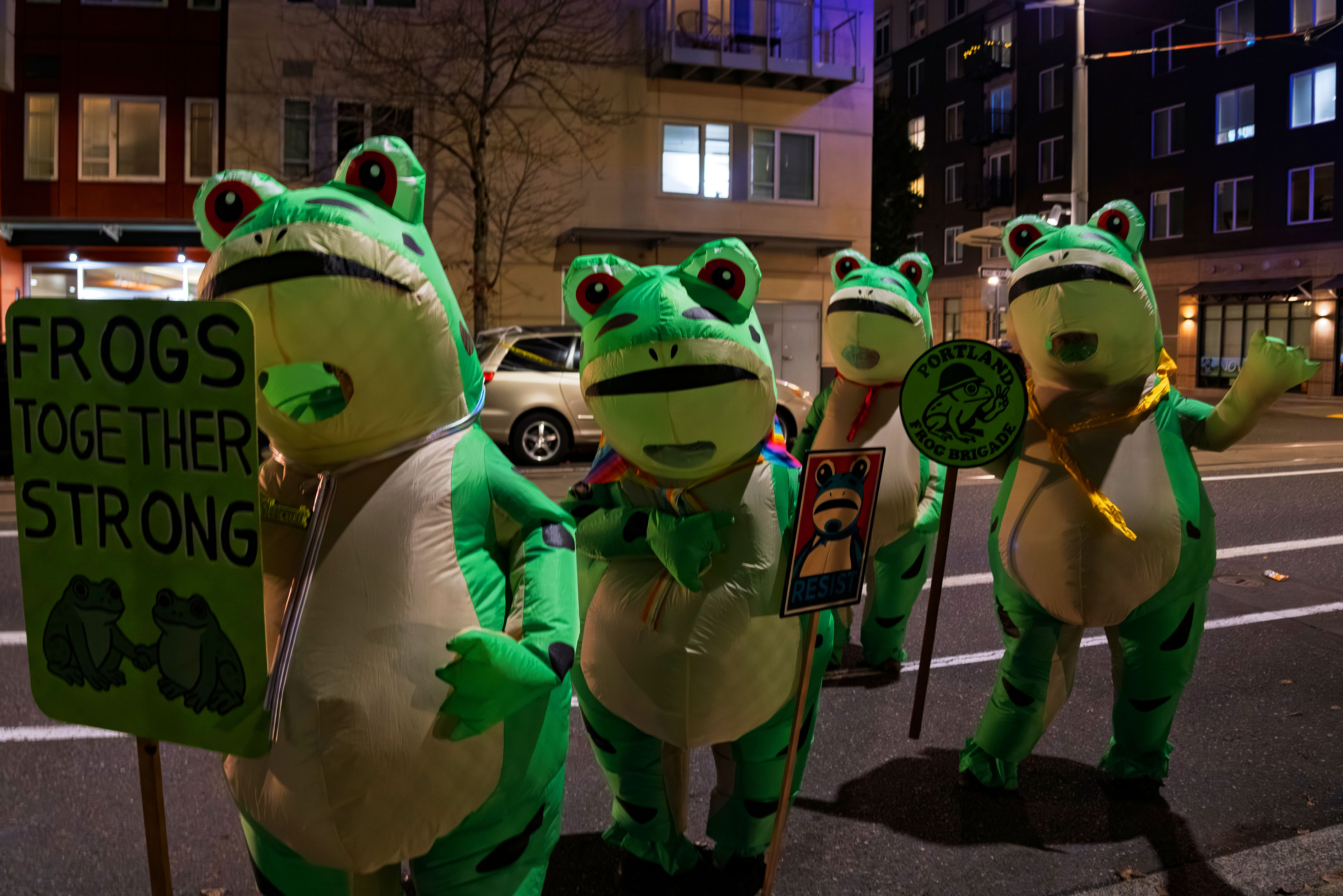Portland’s Grassroots Campaigns Step In When Others Have Failed

Across Oregon, communities are suffering from the economic fallout of COVID-19, dealing with loss of income, lack of personal protective equipment, food, and other necessities. In response, hundreds of grassroot, community-driven campaigns have sprung forth. Their existence is both a testament to human kindness, and a stark reminder of systems that have failed to its people.
Image: Lars Leetaru
Karen Lettner, like a lot of us these days, sits in front of her computer screen, sifting through various social media channels and responding to emails. But she’s not just passing time, sheltering in place while the coronavirus continues to upend lives across the globe. She’s waiting for her next assignment.
At 62, the retired Portland Public Schools special education instructor has been delivering medication for immunocompromised individuals, going on grocery runs or picking up food boxes for others. The assignments come sporadically and are contactless, but nevertheless she feels connected to something bigger.
“When COVID-19 hit, I started looking for ways to help others,” Lettner says. “I am so impressed with the organization and love put forth by the group. Working with them helps me feel less powerless.”
Lettner is a member of the PDX Covid-19 Mutual Aid Network—a loose collective of volunteers that mobilized 12 days before Gov. Kate Brown issued her stay-at-home order on March 23. The network’s 3,000 volunteers staff community kitchens, make drive-through food pickups, sew masks for senior living facilities, and refill prescriptions—each task with its own dangers and risks, given the easily transmissible virus. There’s no board of directors, no 501c3 tax status, no
annual gala. Instead, the group just went out and starting doing things.
As of May Oregon had about 25 established mutual aid networks. Their existence is, no question, a powerful testament to human kindness and the spirit of volunteerism. But they’re also a dark, sobering reminder that, for thousands of Oregonians, there are no government or nonprofit systems in place to help them during a crisis. The systems simply do not exist, or are stretched too thin to reach the hundreds of thousands of Oregonians dealing with loss of income, food insecurity, and rent bills piling up.
“What we recognize is we don’t have a system in the United States that is supporting the needs of all Americans. And those are gaps that have always been there,” says Louie Redmon, a social worker and organizer with the PDX Covid-19 Mutual Aid Network. The coronavirus “makes it even more visible, that we can’t rely on the current structure,” Redmon says. “We have to make something different. It doesn’t work.”
At the core of the mutual aid networks is a system that prioritizes the most vulnerable: people of color, trans and queer people, the houseless community, the elderly. In Multnomah County, more than 40 percent of people who tested positive for coronavirus as of early May were from communities of color, despite making up only 31 percent of the county’s population. People of color are also more likely to be essential workers, unable to telework and stay quarantined at home. And they’re less likely to have access to health care and insurance coverage.
In its first few months, the Portland group received aid requests from around 1,000 individuals. And its GoFundMe campaign, with mostly individual or anonymous donors, has garnered more than $100,000 to go toward buying food and supplies for those in need, as well as reimbursing volunteers for transportation and other related costs.
It’s a threadbare solution that should never have been necessary, a fact that some government officials in Oregon have nodded to, while suggesting that we all, collectively, need to find a better way forward.
“Here’s the thing: some structures that existed before need to be challenged,” Portland Mayor Ted Wheeler said in May, while introducing an austerity budget for the hard-hit city. “There is deep inequity in our society, and it’s only been exacerbated by COVID-19. But [those structures] don’t have to continue.” (To that end, Wheeler’s budget included north of $8 million in federally-provided rent assistance for lower-income households.)
“This isn’t an issue specific to COVID-19. These issues of people not being able to survive and thrive in America have always been there, it’s just more apparent right now,” Redmon says.




